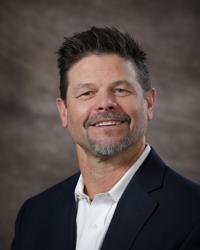The following is the opinion and analysis of the writer:

Erik Bakken
Like some politicians, some of the StarŌĆÖs op-ed contributors have decided they are entitled to not only their own opinions but their own facts. Assert whatever you want in support of your case and, if confronted with contrary evidence, simply double down.
Recently, a member of this paperŌĆÖs editorial advisory board has employed this strategy in op-ed arguments criticizing TEP and ŌĆ£Project Blue.ŌĆØ Despite a lack of evidence and expertise, he confidently asserts utter falsehoods about how a data center project proposed by Beale Infrastructure would impact local electric reliability and rates.
The writer claims without evidence that this project would “strain” our grid and risk “rolling summertime power blackouts.” The first time he made this claim, TEP’s grid operations director provided a detailed rebuttal explaining how we prepare to meet such needs. (To read it, visit .) In reasserting the same falsehood, this public health advocate takes a cue from vaccine skeptics by simply ignoring evidence that contradicts an appealing public claim.
People are also reading…
He asserts without evidence that the costs we incur to serve this data center will be borne by residential customers; in fact, he says it’s “guaranteed.” This isn’t true. To address this common misconception, TEP CEO Susan Gray explained on this page how the project would pay its own way and provide benefits for our other customers. TEP also shared additional details and evidence to show how serving a large-scale data center would result in lower bills than if the data center was not taking service from TEP. (You can read more at )
We have explained, repeatedly, that TEPŌĆÖs pending request for new rates is based only on historical costs, not potential future expenses. No one who believes otherwise has any evidence to the contrary, because that evidence does not and cannot exist. But if your only goal is to block this data center, then falsely tying it to our pending rate request does offer certain rhetorical advantages.
One bit of evidence is cited: a statistic from a recent Bloomberg News article that is both mischaracterized and used out of context. The full article is worth a read (subscription required), but donŌĆÖt overlook the bit where the authors explain that their research excludes analysis of traditionally regulated states like Arizona.
For those who would assert that data centers will drive up the cost of power for our customers, itŌĆÖs not hard to find news articles that blame data centers for energy cost increases elsewhere. But electric service in many of those areas, like those studied by Bloomberg, are managed by regional authorities under rules designed to incorporate more market forces in energy pricing and resource development.
ArizonaŌĆÖs energy providers donŌĆÖt operate that way. Here, each regulated utility is responsible for meeting energy needs in its own service territory, primarily through resources developed pursuant to our long-term integrated resource plans. Utilities cannot start recovering their costs until resources are online and approved by regulators. Importantly, our recovery is based on resource cost, not the market value of their output.
This allows our regulators to design rates that recover certain costs from certain customers, sometimes through specific Energy Supply Agreements crafted for certain large energy users. The Arizona Corporation Commission also has opened a docket to discuss specific rates for hyperscale data centers to ensure that the cost of serving them is not borne by others.
These details are admittedly pretty boring. But they do provide a factual foundation for our assertion that TEPŌĆÖs customers will not be negatively impacted from the development of data centers in our region.
TEP is, of course, obligated to provide electric service if we can to businesses that choose to operate in our region. We are committed to doing so in ways that maintain safe, reliable, and affordable service for all our customers. While we suspect some people will continue to argue otherwise, we will continue to provide evidence for this assertion 24 hours a day, seven days a week, as we have for 133 years and counting.
Follow these steps to easily submit a letter to the editor or guest opinion to the ├█╠ęė░Ž±AV.
Erik Bakken is Senior Vice President and Chief Administrative Officer for Tucson Electric Power.


